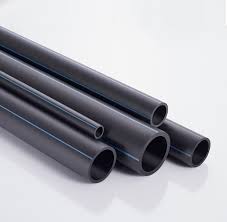Dec . 17, 2024 00:51 Back to list
hdpe sewer pipe product
Understanding HDPE Sewer Pipe A Modern Solution for Wastewater Management
High-Density Polyethylene (HDPE) sewer pipes have become a vital component in modern wastewater management systems. Their unique properties, combined with the advancemed technologies in pipe manufacturing, make them a preferred choice for various applications. This article will explore the advantages, applications, and considerations associated with HDPE sewer pipes.
What is HDPE?
High-Density Polyethylene is a thermoplastic polymer made from petroleum. Its distinguishing characteristics include high strength-to-density ratio, resistance to impact, and low moisture absorption. These properties have led to its widespread use in various industries, particularly in the construction of sewer systems.
Advantages of HDPE Sewer Pipes
1. Durability One of the most significant advantages of HDPE sewer pipes is their durability. These pipes are resistant to a variety of chemicals, corrosion, and environmental stresses, which means they can withstand harsh conditions that would ravage traditional materials like concrete or metal. An HDPE pipe's life expectancy can range from 50 to 100 years with proper installation and maintenance.
2. Flexibility HDPE pipes are remarkably flexible compared to rigid pipes made of PVC or concrete. This flexibility allows them to bend under pressure and adapt to ground movements without cracking. It’s especially beneficial in regions prone to seismic activity or shifting soils.
3. Lightweight and easy to handle HDPE pipes are significantly lighter than their concrete or metal counterparts, which simplifies transportation and installation. Their reduction in weight can lead to lower installation costs and less labor required on site.
4. Leak-proof Joints HDPE sewer pipes use heat fusion technology, resulting in smooth, seamless joints. This creates a leak-proof system that helps prevent groundwater contamination and loss of treated water. The ability to create long runs of pipe without joints reduces the risk of leaks and blockages, improving overall efficiency.
5. Environmental Impact With increasing awareness of environmental issues, HDPE provides a more sustainable option. Its production involves less energy than traditional materials, and it is 100% recyclable. Utilizing recycled HDPE in pipe manufacturing is an excellent way to reduce plastic waste.
Applications of HDPE Sewer Pipes
HDPE sewer pipes are versatile and applicable in various sectors, including
hdpe sewer pipe product

- Municipal and Industrial Wastewater Cities are increasingly utilizing HDPE for the installation of sewer lines, treatment facilities, and drainage systems due to its longevity and resistance to corrosive materials found in wastewater.
- Residential Plumbing Many homeowners are choosing HDPE for septic systems and underground drainage due to its reliability and performance.
- Agricultural Uses HDPE pipes are often used in agricultural drainage systems to manage water efficiently and prevent flooding in fields, promoting healthier crop yields.
Considerations When Choosing HDPE Sewer Pipes
While HDPE sewer pipes come with notable advantages, several considerations should be taken into account for successful implementation
1. Installation Techniques Proper installation is crucial for ensuring the performance of HDPE pipes. It is essential to follow manufacturer guidelines and industry standards to avoid potential issues.
2. Soil Conditions The type of soil and environmental conditions can affect the choice of pipe. In some cases, additional protective measures may be required in rocky or unstable soil.
3. Regulatory Compliance Different regions may have specific regulations governing sewer installations. Always check local guidelines and standards to ensure compliance.
4. Cost vs. Long-term Benefits Although HDPE might have a higher initial cost compared to other materials, its longevity and low maintenance needs can lead to cost savings in the long run.
Conclusion
In summary, HDPE sewer pipes represent an innovative and efficient solution for modern wastewater management. Their durability, flexibility, and environmental benefits make them an appealing choice for various applications. As municipalities and industries continue to seek sustainable solutions, the role of HDPE pipes is likely to expand, making them essential in the pursuit of smarter and greener urban infrastructure. Embracing this technology offers a timely response to the challenges of wastewater management, paving the way for a cleaner and more sustainable future.
-
High-Quality PVC Borehole Pipes Durable & Versatile Pipe Solutions
NewsJul.08,2025
-
High-Quality PVC Perforated Pipes for Efficient Drainage Leading Manufacturers & Factories
NewsJul.08,2025
-
High-Quality PVC Borehole Pipes Durable Pipe Solutions by Leading Manufacturer
NewsJul.08,2025
-
High-Quality PVC Borehole Pipes Reliable PVC Pipe Manufacturer Solutions
NewsJul.07,2025
-
High-Quality UPVC Drain Pipes Durable HDPE & Drain Pipe Solutions
NewsJul.07,2025
-
High-Quality Conduit Pipes & HDPE Conduit Fittings Manufacturer Reliable Factory Supply
NewsJul.06,2025

